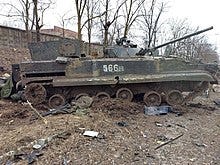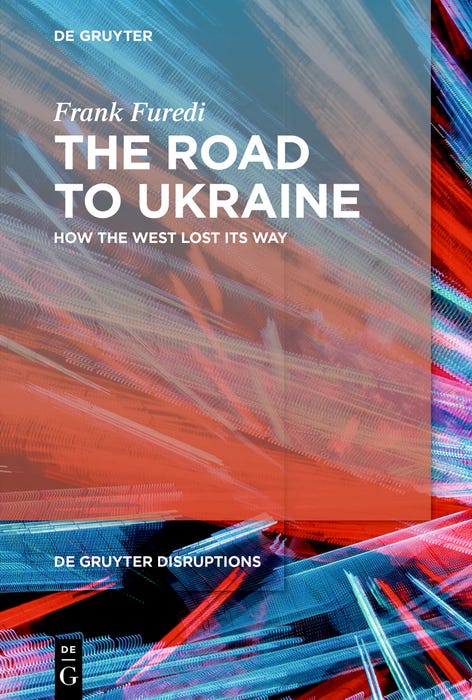A Year After Russia's Invasion Of Ukraine We Are Moving Towards The Militarisation Of Global Affairs
Yet the West remains morally disarmed
One year after Russia’s invasion of Ukraine it is evident that not only is the war not going to end any time soon but also that we are heading for the militarisation of global affairs.
Don’t think of it as Cold War 0.2.
Don’t think of it as merely a conflict unleashed by the reckless ambition of Putin and his cronies in Moscow.
The current conflict represents the latest phase of a series of events that came into play with the outbreak of World War One. Despite the decades long illusion that conventional wars were confined to the past and that Europe has turned into a war-free zone it is now evident that you can’t just leave the past behind. Even the short-sighted leaders of the western powers have been forced to realise that very few of the geopolitical problems that lay buried during the Cold War have been resolved.
A recent story in Politico about the recent Munich Security Conference captured the mood prevailing amongst the western security establishment. Its title stated. ‘It’s the end of the word as we know it — and Munich feels nervous’. The sentiment communicated by this headline is only half right. It is not so much the end of the world but of the illusions they had about it. If the great and the good who attended the Munich Security Conference felt nervous it is because so many of their assumptions about global affairs have proved to be erroneous.
They now know that contrary to their globalist assumptions, the nation state retains a vital role in international affairs. They now understand that coupling their economies so closely to that of Russia and China was short sighted and came with considerable economic and political cost. At the Munich Conference it also became evident that the West and the international institutions it controls have lost considerable influence over the global South. At Munich many of the large African, Asian and Latin American countries were clearly disinterested in supporting NATO’s strategy towards Russia. As I write a joint maritime military exercise is underway in South Africa involving China and Russia along with the South African navy.
In private, the more astute policy makers also wondered, ‘how long can the unity of the West against Russia endure’?
As I argue in my book, The Road To Ukraine: How The West Lost Its Way, the foreign policy elites of western societies are not quite up to the task of dealing with the challenges facing them. They find it difficult to articulate a coherent account of their nation’s interest and lack the kind of clarity and resolution required for the conduct of foreign affairs. A string of foreign policy failures culminating in the humiliating withdrawal from Afghanistan highlights this trend. There were no Talleyrands,, Bismarcks, Kennans or Kissingers at Munich. There are only short-sighted policy managers who are totally fixed on their media image.
In The Road To Ukraine, I introduce the concept of the Moral Disarmament of the West to highlight the sense of disorientation that prevails amongst its geopolitical decision makers. The moral disarmament of the West was on full display at Munich. Munich’s performative diplomacy represents the antithesis of the Real McCoy, which relies on serious behind-the-scenes discussions. One perceptive journalist asked ‘so why does Berlin allow its premier international showcase to be run like a Gulf emirate’? The short answer to this question is, ‘because it does not quite get the distinction between public relations and the conduct of geo-politics’.
In the post-Cold War years, a morally disarmed European elite evaded facing the challenge of dealing with the many issues surrounding national security. That is why the nations of Western Europe find themselves in a situation where they lack the capacity necessary to defend themselves when confronted with the spectre of war on their continent. The belated attempt by EU leaders to adopt the policy of ‘strategic autonomy’ exposes the absence of precisely the kind of capacities necessary for the defence of its security[vi]. Having outsourced responsibility for its military defence to the United States, Europe is forced to rearm itself. Even Germany, which has been most hesitant on this score, has opted to increase its spending on defence. However, spending on defence is not enough; the West also needs to rearm morally.
The proceedings at the Munich Security Conference indicate that the leaders of the West have not even began to recognise the need to educate themselves in the basics of geo-politics.
I will be discussing the above points on the Brendan O’Neill Podcast this Friday
If you happen to be in Brussels - check out a conference I am organising with colleagues at MCC-Brussels on what I think is the question of our time.
If you wish to register for this event click on the link below.
https://brussels.mcc.hu/event/the-return-of-geopolitics-europe-a-year-after-russias-invasion-of-ukraine







